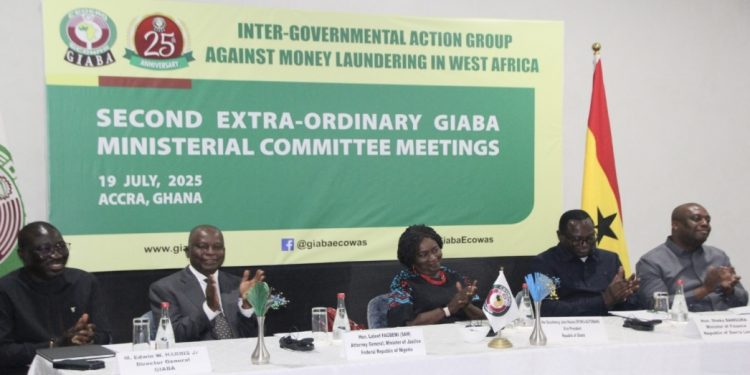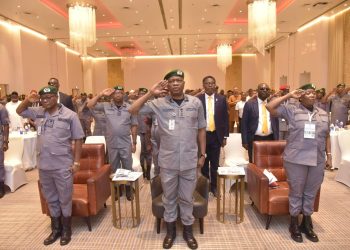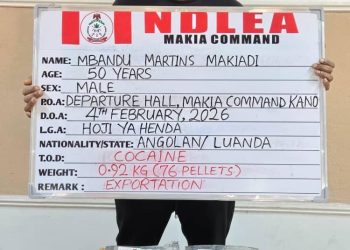By Nkechi Eze
In a landmark decision reflecting both geopolitical shifts and a commitment to regional security and financial integrity, the Ministerial Committee of the Inter-Governmental Action Group Against Money Laundering in West Africa (GIABA) has unanimously approved the applications of Burkina Faso, Mali, and Niger for admission as non-ECOWAS member States of the organisation.
The decision was reached during the 2nd Extraordinary Session of the GIABA Ministerial Committee (GMC), held on July 19, 2025, in Accra, Ghana. The meeting marked a critical juncture for GIABA and the broader West African region, coming months after the official withdrawal of the three Sahelian countries from the Economic Community of West African States (ECOWAS).
The GMC, as GIABA’s highest decision-making organ, comprises the Ministers of Finance, Internal Affairs or Security, and Justice from each GIABA member State. During the deliberations, the GMC examined a Memorandum presented by the GIABA Secretariat detailing the applications of Burkina Faso, Mali, and Niger and affirming that the trio had substantially met the eligibility criteria to be considered for non-ECOWAS membership.
According to the GIABA statute, non-ECOWAS States may be admitted as long as they meet specific requirements. Prior to this decision, only two non-ECOWAS countries, São Tomé and Príncipe, and the Comoros Islands held membership in GIABA. The applications of Burkina Faso, Mali, and Niger thus represent a major expansion of GIABA’s reach and influence beyond ECOWAS confines.
In its presentation to the GMC, the GIABA Secretariat emphasised that the three countries demonstrated strong commitment to the fight against money laundering, terrorism financing, and proliferation financing (AML/CFT/CPF). Furthermore, they pledged to meet their financial and institutional obligations as GIABA members and implement its decisions fully.
The GMC, after extensive discussions, agreed to recommend their admission to the Authority of Heads of State and Government of ECOWAS through the ECOWAS Council of Ministers for final consideration and approval. In reaching its decision, the Committee assessed not only the legal framework permitting non-ECOWAS membership but also weighed the potential consequences of non-admission on regional peace, security, and development. The unanimous endorsement by the GMC underscores the strategic importance of ensuring continued regional collaboration, despite political realignments.
It would be recalled that Mali, Burkina Faso, and Niger formally withdrew from ECOWAS in January 2024, citing internal political differences and dissatisfaction with certain ECOWAS sanctions and policies. The three Sahelian states went on to form the Alliance of Sahel States, a confederation with shared political and military aspirations. ECOWAS had granted them a six-month grace period to reconsider, but the withdrawal became irrevocable as of January 29, 2025, marking the end of the one-year notice period.
Following the GMC’s unanimous decision, delegations from Burkina Faso, Mali, and Niger expressed their deep appreciation for the approval of their applications. The three countries reaffirmed their shared commitment to GIABA’s mission and acknowledged the importance of collaborative efforts in countering regional security threats, particularly the financing of terrorism which remains a significant challenge in the Sahel.
The summit also featured significant updates on ongoing AML/CFT activities in the region. In his welcome address, the Director General of GIABA, Mr. Edwin W. Harrs Jr., informed the Committee of Mali’s exit from the Financial Action Task Force (FATF) grey list in June 2025, a notable milestone reflecting improved compliance with global AML/CFT standards.
He also announced the upcoming onsite visits by the Africa Joint Group of the International Cooperation Review Group of FATF to Nigeria and Burkina Faso, scheduled for August 2–5 and August 7–9, 2025, respectively. These visits are expected to lay the groundwork for Nigeria and Burkina Faso’s potential exit from the FATF grey list by October 2025. The DG expressed optimism that both nations were on the right path towards full FATF compliance.
In a related development, the Financial Intelligence Units (FIUs) of The Gambia and Sierra Leone were admitted into the Egmont Group in July 2025, reinforcing their commitment to international financial transparency and cooperation. Mr. Harrs Jr. further disclosed that FATF has invited Nigeria to serve as a guest member of the global financial watchdog from October 2025 to October 2026, a development hailed as a recognition of Nigeria’s growing leadership in the anti-financial crime architecture of the region.
The GMC was also informed of plans to mark GIABA’s Silver Jubilee Anniversary in Monrovia, Liberia, in November 2025, a celebration expected to bring together regional and international partners, stakeholders, and development allies to reflect on GIABA’s journey, achievements, and future strategy.
Declaring the meeting open, Her Excellency, Professor Jane Naana Opoku-Agyemang, Vice President of the Republic of Ghana, commended GIABA for its enduring role in safeguarding the financial integrity of West Africa. She urged the GMC to remain guided by the shared values and goals that bind the ECOWAS region, even as the organisation adapts to changing political dynamics.
“The decision before you today has far-reaching implications for the future structure, reach, and efficiency of GIABA,” she stated. “Our goal must be to ensure that GIABA remains inclusive, responsive, and capable of adapting to new and evolving threats.”
She stressed that unity, mutual respect, and strategic cooperation must remain at the heart of regional decision-making. “The admission of these countries will deepen our collective resolve to safeguard financial systems against abuse and strengthen regional stability,” she added.
A symbolic high point of the session was the official handover of the GMC Chairmanship from Nigeria to Sierra Leone. Prince Lateef Fagbemi (SAN), Nigeria’s Attorney-General and Minister of Justice, handed over the mantle to Mr. Sheku F. Bangura, Minister of Finance of Sierra Leone. The peaceful and cordial transition signified the spirit of continuity and consensus that defines GIABA’s leadership rotation.
As the GIABA Ministerial Committee concluded its session, the decision to approve the Sahel countries as non-ECOWAS members marked a defining moment in the organisation’s evolution. It reflects the regional body’s ability to navigate political changes while maintaining its central mission: combating financial crimes, fostering security, and enhancing economic development in West Africa and beyond.















